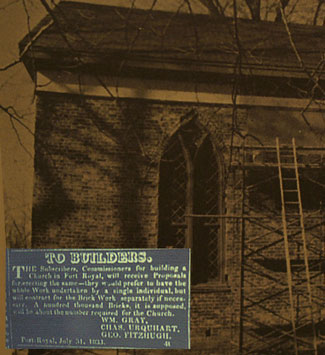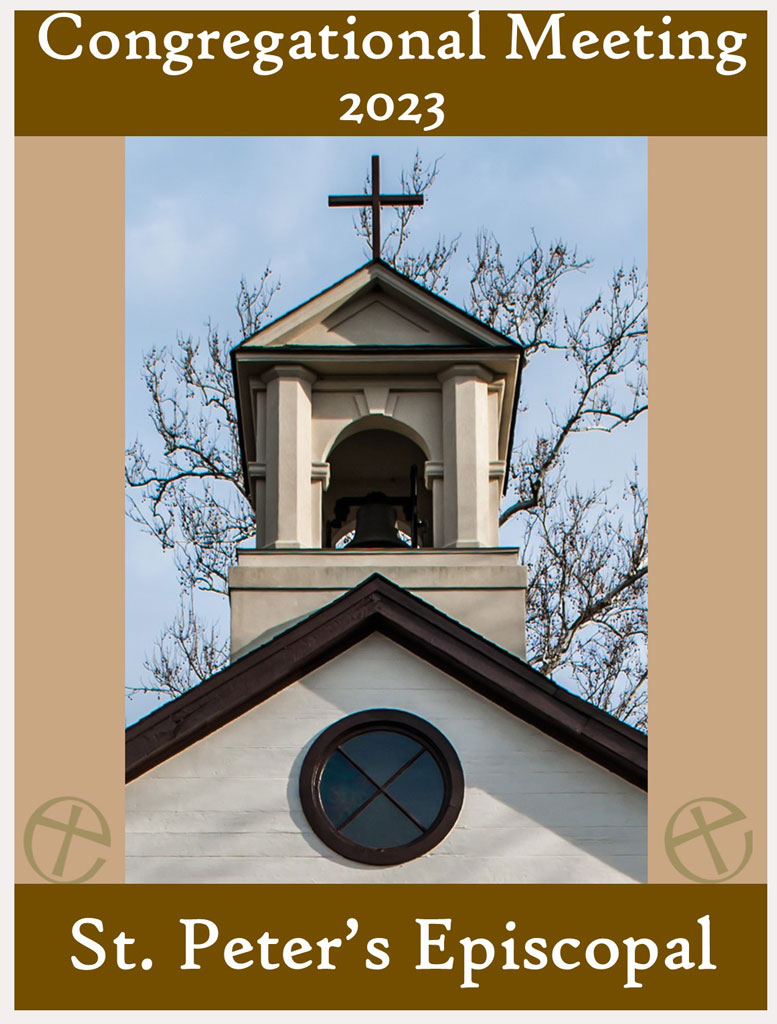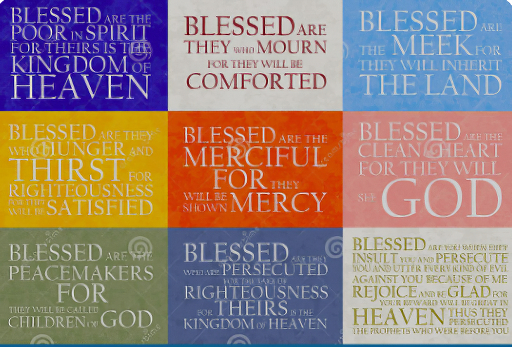New! Absalom Jones video


“Greater love has no man…” John 15:13
Religious denominations often accept members from other denominations that have been affected with adversities through policy decisions, change of beliefs or disagreements in relationships. Imagine coming to a new church after achieving success another denomination.
That’s what happened to Absalom Jones (b 1746), whose day we celebrate on Feb. 13, the day he died in 1818. Jones became not only the first trained black minister in any denomination but the first black minister ordained into the Episcopal Church and the first to create a Black religious organization in Philadelphia.
Absalom Jones was born enslaved to Abraham Wynkoop a wealthy Anglican planter in 1746 in Delaware. He was working in the fields when Abraham recognized that he was an intelligent child and ordered that he be trained to work in the house.
He wrote later. .” I was small, when my master took me from the field to wait and attend on him in the house; and being very fond of learning, I was careful to save the pennies that were given to me by the ladies and gentlemen from time to time. I soon bought myself a primer, and begged to be taught by any body that I found able and willing to give me the least instruction. Soon after this, I was able to purchase a spelling book; for as my money increased, I supplied myself with books, among others, a Testament. For, fondness for books, gave me little or no time for the amusements that took up the leisure hours of my companions. By this course I became singular, and escaped many evils, and also saved my money.”
At the age of 16, Jones’ mother, sister, and five brothers were sold, but he was brought to Philadelphia by his master, where he attended a night school for African-Americans operated by Quakers.
His master granted him a manumission in 1784, after refusing for several years to allow Absalom to purchase his freedom. As he wrote, “My desire for freedom increased, as I knew that while I was a slave, my house and lot might be taken as the property of my master. This induced me to make many applications to him for liberty to purchase my freedom.”
He met Richard Allen while worshiping at St. George’s Methodist Episcopal Church who had been engaged to preach at St. George’s and the two became lifelong friends.
He served as a lay preacher at St. George’s Methodist Episcopal Church from 1784 – 1786 and helped increase the African-American membership tenfold. The black members worked hard to help raise money to build an upstairs gallery intended to enlarge the church.
The result of this increase in membership made the white membership uneasy. They decided blacks had to sit in the gallery in Philadelphia. Jones learned of the decision only when, on the following Sunday after the decision, ushers tapped them on the shoulder during the opening prayers, and demanded that they move to the balcony without waiting for the end of the prayer. This was an act of segregation that Jones, his friend and co-worker Richard Allen, and the black congregants felt so strongly about that they left the church in a body and formed their own congregations.
Allen’s group became the Bethel Church (later Mother Bethel African Methodist Episcopal Church). Jones became the Lay Reader and Deacon of the African Episcopal Church of St. Thomas. Jones was ordained an Episcopal priest by Bishop William White in 1802.
Jones and another Richard Allen formed the Free African Society (FAS) in Philadelphia in 1787 whose main goal was to provide aid to newly freed blacks so that they could gather strength and develop leaders in the community. This was among the first organizations of its kind in America
In 1790, the city had 2,000 free black residents, a number that continued to increase. In the first two decades after the war, inspired by revolutionary ideals, many slaveholders freed their slaves, especially in the Upper South Northern states largely abolished slavery. Numerous freedmen migrated to Philadelphia from rural areas of Pennsylvania and the South
The FAS provided social and economic guidance, and medical care. The FAS became famous for its members’ charitable work as nurses and aides during the Yellow Fever Epidemic of 1793, when many residents abandoned the city. The doctor Benjamin Rush believed African Americans were immune to the disease. He wrote an open letter in the newspaper, under the pseudonym of a well-known Quaker who helped educate blacks, and appealed to blacks to aid others in the city during the epidemic .Allen and Jones decided to respond, together with other members of the FAS who served both black and white residents as nurses and aides during those terrible months.
After all their work, Allen and Jones wrote a memoir about the events, which they published the following year, A Narrative of the Proceedings of the Black People during the late awful calamity .
The Society soon became too large to meet in Richard Allen’s house and its meetings moved to the Quaker African School House. In 1789, the Society more closely aligned itself with the Quaker faith and its meetings began to mimic Quaker services. That prompted Allen, who was a Methodist, and many who were loyal to him to leave the organization.
It was the first Black religious institution in the city and led to the establishment of the first independent Black churches in the United States.
In 1792 Jones and Allen, with the assistance of local Quakers and Episcopalians, established the “First African Church” in Philadelphia which opened its doors in 1794. Shortly after the establishment that same year, the African Church applied to join the Protestant Episcopal Church, laying before the diocese three requirements: the Church must be received as an already organized body; it must have control over its own affairs; and Jones must be licensed as lay-reader and if qualified, ordained as its minister.
The first Episcopal bishop Williams White accepted them. Jones would serve as lay reader and study to be come a deacon in 1794. He and Jones would became the first black Americans to receive training in any denominations and Jones the first black priest in the Episcopal Church. It was the first Episcopal church for blacks.
Numerous members had come from the South, where they had belonged to the Anglican Church before the war. In 1804, Jones was the first black to be ordained as an Episcopal priest in the United States.
Note that Jones was forced to accept the postponement of his own ordination to the priesthood for nearly 10 years as a condition of St. Thomas’s acceptance into the Diocese of Pennsylvania. By the way, that acceptance also included a stipulation that neither the priest nor the congregation would be permitted to attend diocesan convention. So, throughout Absalom Jones’ entire ministry, he never knew true and equal acceptance into the community of the Episcopal Church.
Jones was a successful minister. is constant visiting and mild manner that made him beloved by his congregation and by the community. St Thomas Church grew to over 500 members during its first year. The parishioners formed a day school and were active in moral uplift, self-empowerment, and anti-slavery activities. Known as “the Black Bishop of the Episcopal Church,” Jones was an example of persistent faith in God and in the Church as God’s instrument.
Allen disagreed with the move to the Episcopal church stayed with the Methodist Church. By 1816 he had formed a new denomination , the Methodist Episcopal “Church.
Jones continued to be a leader in his community, founding a day school (as African Americans were excluded from attending public school), the Female Benevolent Society, and an African Friendly Society.
In 1797, when the first African Masonic Lodge of Philadelphia was warranted, Absalom Jones was installed as First Worshipful Master and in 1815 he was elected the First Grand Master of the First African Grand Lodge of Pennsylvania.
Jones’s favorite Bible verse is said to have been Galatians 5:1, “For freedom Christ has set us free. Stand firm, therefore, and do not submit again to a yoke of slavery” (NRSV). Both Jones and Allen continued their work against slavery. They petitioned the Pennsylvania State Legislature in 1799, campaigning for the abolition of slavery. In 1800, they sent a similar petition to the U.S. Congress. Both continued to champion change in both moral and racial arenas. Jones started schools for blacks in Pennsylvania since the state did not support education for them.
He died on Feb. 13, 1818.
REVISED ABSALOM JONES BIOGRAPHICAL INFORMATION
By Arthur K. Sudler William Carl Bolivar Director Historical Society & Archives African Episcopal Church of St. Thomas
Absalom Jones was born enslaved to Abraham Wynkoop a wealthy Anglican planter in 1746 in Delaware. He was working in the fields when Abraham recognized that he was an intelligent child and ordered that he be trained to work in the house. Absalom eagerly accepted instruction in reading. He also saved money he was given and bought books (among them a primer, a spelling book, and a bible). Abraham Wynkoop died in 1753 and by 1755 his younger son Benjamin had inherited the plantation. When Absalom was sixteen Benjamin Wynkoop sold the plantation and Absalom’s mother, sister, and five brothers. Wynkoop brought Absalom to Philadelphia where he opened a store and joined St. Peter’s Church. In Philadelphia Benjamin Wynkoop permitted Absalom to attend a night school for black people that was operated by Quakers following the tradition established by abolitionist teacher Anthony Benezet.
At twenty, with the permission of their masters, Absalom married Mary Thomas who was enslaved to Sarah King who also worshipped at St. Peter’s. The Rev. Jacob Duche performed the wedding at Christ Church. Absalom and his father-in-law, John Thomas, used their savings, and sought donations and loans primarily from prominent Quakers, in order to purchase Mary’s freedom. Absalom and Mary worked very hard to repay the money borrowed to buy her freedom. They saved enough money to buy property and to buy Absalom’s freedom. Although he repeatedly asked Benjamin Wynkoop to allow him to buy his freedom Wynkoop refused. Absalom persisted because as long as he was enslaved Wynkoop could take his property and his money. Finally, in 1784 Benjamin Wynkoop freed Absalom by granting him a manumission. Absalom continued to work in Wynkoop’s store as a paid employee.
Absalom left St. Peter’s Church and began worshipping at St. George’s Methodist Episcopal Church. He met Richard Allen who had been engaged to preach at St. George’s and the two became lifelong friends, Together, in 1787, they founded the Free African Society a mutual aid benevolent organization that was the first of its kind organized by and for black people. Members of the Society paid monthly dues for the benefit of those in need. At St George’s, Absalom and Richard served as lay ministers for the black membership. The active evangelism of Jones and Allen, greatly increased black membership at St George’s. The black members worked hard to help raise money to build an upstairs gallery intended to enlarge the church. The church leadership decided to segregate the black worshippers in the gallery, without notifying them. During a Sunday morning service a dispute arose over the seats black members had been instructed to take in the gallery and ushers attempted to physically remove them by first accosting Absalom Jones. Most of the black members present indignantly walked out of St. George’s in a body.
Prior to the incident at St. George’s the Free African Society had initiated religious services. Some of these services were presided over by The Rev. Joseph Pilmore an assistant St. Paul’s Episcopal Church. The Society established communication with similar black groups in other cities. In 1792 the Society began to build the African Church of Philadelphia. The church membership took a denominational vote and decided to affiliate with the Episcopal Church. Richard Allen withdrew from the effort as he favored affiliation with the Methodist Church. Absalom Jones was asked to provide pastoral leadership and after prayer and reflection he accepted the call.
The African Church was dedicated on July 17, 1794. The Rev. Dr. Samuel Magaw, rector St. Paul’s Church, preached the dedicatory address. Dr. Magaw was assisted at the service by The Rev. James Abercrombie, assistant minister at Christ Church. Soon thereafter the congregation applied for membership in the Episcopal Diocese of Pennsylvania on the following conditions: 1) that they be received as an organized body; 2) that they have control over their own local affairs; 3) that Absalom Jones be licensed as layreader, and, if qualified, be ordained as minister. In October 1794 it was admitted as the African Episcopal Church of St Thomas. The church was incorporated under the laws of the Commonwealth of Pennsylvania in 1796. Bishop William White ordained Jones as deacon in 1795 and as priest on September 21, 1802.
Jones was an earnest preacher. He denounced slavery, and warned the oppressors to “clean their hands of slaves.” To him, God was the Father, who always acted on “behalf of the oppressed and distressed.” But it was his constant visiting and mild manner that made him beloved by his congregation and by the community. St Thomas Church grew to over 500 members during its first year. The congregants formed a day school and were active in moral uplift, self-empowerment, and anti-slavery activities. Known as “the Black Bishop of the Episcopal Church,” Jones was an example of persistent faith in God and in the Church as God’s instrument. Jones died on this day in 1818.
Here is Absalom’s autobiographical sketch from Douglass’ Annals (1862):
ABSALOM JONES AUTOBIOGRAPHICAL SKETCH/ANNALS*
The following narrative is copied from the original manuscript written by himself:
“I, Absalom Jones was born in Sussex,” DEL., “on the 6th of November, 1746. I was small, when my master took me from the field to wait and attend on him in the house; and being very fond of learning, I was careful to save the pennies that were given to me by the ladies and gentlemen from time to time. I soon bought myself a primer, and begged to be taught by any body that I found able and willing to give me the least instruction. Soon after this, I was able to purchase a spelling book; for as my money increased, I supplied myself with books, among others, a Testament. For, fondness for books, gave me little or no time for the amusements that took up the leisure hours of my companions. By this course I became singular, and escaped many evils, and also saved my money.
In the year 1762, my mother, five brothers and a sister were sold, and I was brought to the city of Philadelphia with my master. My employment in this city was to wait in the store, pack up and carry out goods. In this situation, I had an opportunity, with the clerk, to get copies set for me; so that I was soon able to write to my mother and brothers, with my own hand. My spelling is bad for want of proper schooling.
In the year 1766, I asked my master the liberty of going one quarter to night-school, which he granted. I had a great desire to learn Arithmetic. In that quarter I learned Addition, Troy weight, Subtraction, Apothecaries’ weight, Practical multiplication, Practical Division, and Reduction.
In the year 1770, I married a wife who was a slave. I soon after proposed to purchase her freedom. To this her mistress agreed, for the sum of forty pounds. Not having the money in hand, I got an appeal drawn, and John Thomas, my father-in-law, and I called upon some of the principal Friends of this city. From some we borrowed, and from other we received donations. In this way we soon raised thirty pounds of the money, her mistress, Sarah King, forgiving the balance of ten pounds. By this time, my master’s family was increased, and I was much hurried in my servitude. However, I took a house, and for seven years, made it my business to work until twelve or one o’clock at night, to assist my wife in obtaining a livelihood, and to pay the money that was borrowed to purchase her freedom.
This being fully accomplished, and having a little money in hand, I made application to my master, in the year 1778, to purchase my own freedom; but, as this was not granted, I fortunately met with a small house and lot of ground, to be sold for one hundred and fifty pounds, continental money. Having laid by some hard money, I sold it for continental and purchased the lot. My desire for freedom increased, as I knew that while I was a slave, my house and lot might be taken as the property of my master. This induced me to make many applications to him for liberty to purchase my freedom; and on the first of October, 1784, he generously gave me a manumission. I have ever since continued in his service at good wages, and I still find it my duty, both late and early, to be industrious to improve the little estate that a kind Providence has put in my hands.
Since my freedom, I have built a couple of small houses on the small lot, which now let for twenty-two pounds a year.”
*Annals of the first African church, in the United States of America: now styled the African Episcopal church of St. Thomas, Philadelphia, in its connection with the early struggles of the colored people to improve their condition, with the co-operation of the Friends, and other philanthropists; partly derived from the minutes of a beneficial society, established by Absalom Jones, Richard Allen and others, in 1787, and partly from the minutes of the aforesaid church
William Douglass
January 1, 1862
King & Baird, printers
Read more














